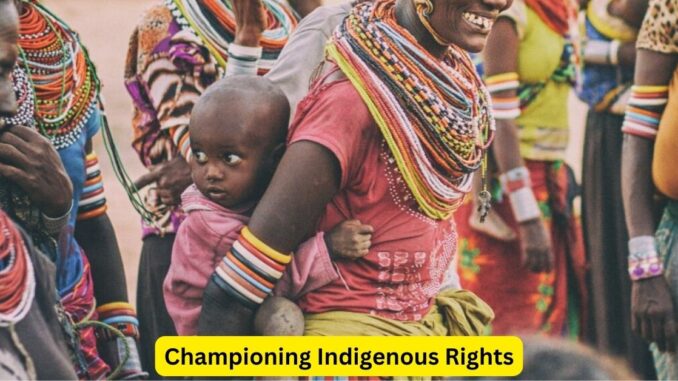
The legal landscape concerning indigenous rights is a complex and multifaceted realm that demands advocacy and protection. Indigenous communities worldwide face historical and ongoing challenges regarding land rights, cultural preservation, self-governance, and recognition of their inherent rights. Legal advocacy plays a pivotal role in championing these rights and addressing the systemic injustices faced by indigenous populations.
Land Rights and Sovereignty: Indigenous communities often have deep connections to ancestral lands, yet these lands have frequently been subject to encroachment, exploitation, or dispossession. Legal advocacy focuses on asserting land rights, challenging unjust land takings, and advocating for the recognition of indigenous sovereignty over their territories.
Cultural Preservation and Heritage Protection: Indigenous cultures, languages, and traditions are integral to their identity and well-being. Legal advocacy aims to protect and preserve indigenous cultural heritage, ensuring the right to practice traditions, maintain languages, and safeguard sacred sites from destruction or desecration.
Self-Determination and Autonomy: The right to self-determination is a fundamental principle for indigenous communities. Legal advocates work to empower indigenous groups to govern themselves, make decisions about their future, and participate in shaping policies that affect their lives, fostering autonomy and self-governance.
Recognition of Indigenous Rights in National and International Law: Legal advocates engage in efforts to ensure the recognition of indigenous rights within national constitutions, laws, and international agreements. They leverage legal frameworks, such as the United Nations Declaration on the Rights of Indigenous Peoples (UNDRIP), to advance the rights of indigenous communities globally.
Environmental Protection and Natural Resource Management: Indigenous lands often harbor invaluable natural resources and ecosystems. Legal advocacy campaigns seek to protect these environments from exploitation, advocating for sustainable resource management and environmental conservation aligned with indigenous values.
Access to Justice and Redress: Indigenous communities frequently face barriers in accessing justice due to systemic discrimination or lack of legal representation. Legal advocates work to bridge this gap, providing legal aid, advocating for fair treatment within the legal system, and seeking redress for historical injustices.
Collaboration and Empowerment: Effective legal advocacy for indigenous rights involves collaboration with indigenous leaders, communities, and organizations. Empowering indigenous groups through legal education, capacity-building, and supporting their active participation in legal processes is integral to effective advocacy.
Intersectionality and Social Justice: Advocacy for indigenous rights intersects with broader social justice movements. Legal advocates often collaborate with other advocacy groups to address intersecting issues of racism, gender inequality, socio-economic disparities, and human rights violations faced by indigenous communities.
Continuous Education and Awareness: Advocacy for indigenous rights requires ongoing education and raising awareness about the historical and contemporary struggles faced by indigenous peoples. Legal advocates play a crucial role in educating the public, policymakers, and the legal community about the importance of upholding indigenous rights.
In conclusion, legal advocacy serves as a powerful tool in defending and advancing indigenous rights. Through strategic legal efforts, collaboration, and a commitment to justice, legal advocates contribute significantly to the recognition, protection, and empowerment of indigenous communities worldwide.
Leave a Reply